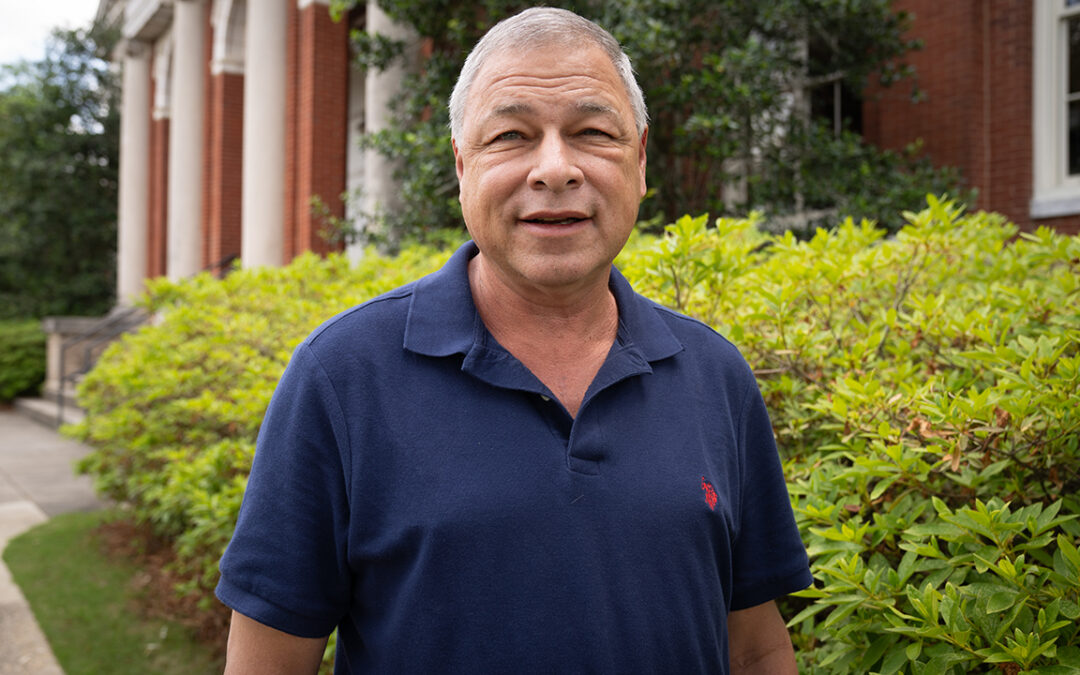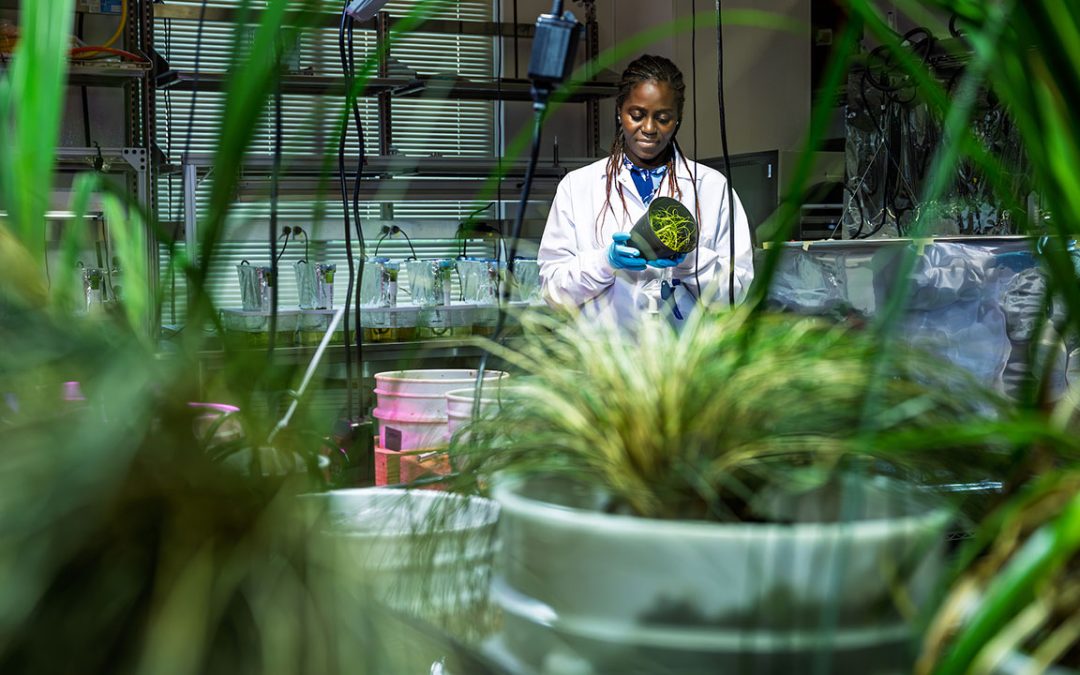By Paul Hollis / Jun 18, 2020 9:21:50 AM
Feature
On a crowded street in Port Harcourt, Nigeria, a woman sells fish and fruit juice cooled by what appears to be ice. But it’s actually FICE, or Functional Ice, an alternative to ice that was created and tested in a lab more than 6,000 miles away, on the Auburn University campus.
“About three years ago, with initial funding provided by the Alabama Agricultural Experiment Station’s (AAES) Production Agriculture Research (PAR) grants, I developed Functional Ice from phosphate and tested it in our lab,” said Amit Morey, assistant professor in the College of Agriculture’s Department of Poultry Science.
“Since then, we have tested various chemical inclusions in FICE depending on the requirement of the industry and the region. We have tested FICE in the U.S., Honduras and most recently in Nigeria,” he said.
Morey collaborated with Ebinimi Ansa (director, African Regional Aquaculture Centre/Nigerian Institute for Oceanography and Marine Research) and Imah Adegoke (social entrepreneur, The Imah Nsa Adegoke Foundation NGO) and worked pro-bono to introduce and test FICE at Port Harcourt, Nigeria.
“Dr. Ansa and Ms. Adegoke networked with the local ice manufacturer as well as local women selling fruit juice and fish on the street side,” Morey said. “We proved that FICE can be commercially manufactured and is not only acceptable but also beneficial to the women in Nigeria who sell fruit juice and fish on the street.
“Since FICE melts slower than regular ice, these women won’t have to buy ice daily. This has not only helped them to save money but make money by selling a great quality product.”
A local ice manufacturer and his wife in Nigeria who participated in the proof-of-concept work also found economic benefit from selling FICE at a slightly higher price than they could sell regular ice.
“FICE ultimately will have a greater impact on socioeconomics and food security of the region,” Morey said. “Our collaborators in Nigeria will introduce FICE to other parts of Africa, especially in the war-torn parts where women have to support families by selling fish and fruit juice. It would be highly beneficial to those women and similar end users if FICE can reduce food waste and food loss while increasing food security in remote parts of the world.”
The beginning stages of FICE research involved inoculating raw poultry — in this case, thigh meat — with Salmonella spp. and subjecting it to 48 hours of storage with FICE.
“We found that FICE can effectively reduce Salmonella spp. during the storage period and act as an additional hurdle to improve food safety,” he said.
Similarly, the research found that FICE reduces the spoilage microorganisms during a separate non-inoculated poultry meat study.
“We also investigated the effect of FICE storage on the quality and shelf life of raw poultry meat during retail tray-pack storage,” Morey said. “We found that 48-hour storage of raw poultry in FICE can increase the subsequent shelf life by one to one-and-a-half days while maintaining quality, including color, texture and water-holding capacity.”
In addition to the lab studies, researchers communicated and discussed their finding with industry stakeholders.
One of the FICE formulations tested under industry settings revealed that FICE increased the yield of the raw poultry meat by 3% and had a lower temperature compared to conventional ice, Morey said.
“The research has come a complete circle where we designed a completely new concept, tested it and now it is impacting the end users,” he said. “We will keep working on newer and more innovative concepts to advance agriculture and to empower the people involved in it.”
The results of the research project have been used to leverage additional research funds from the Foundation for Food and Agriculture Research.





